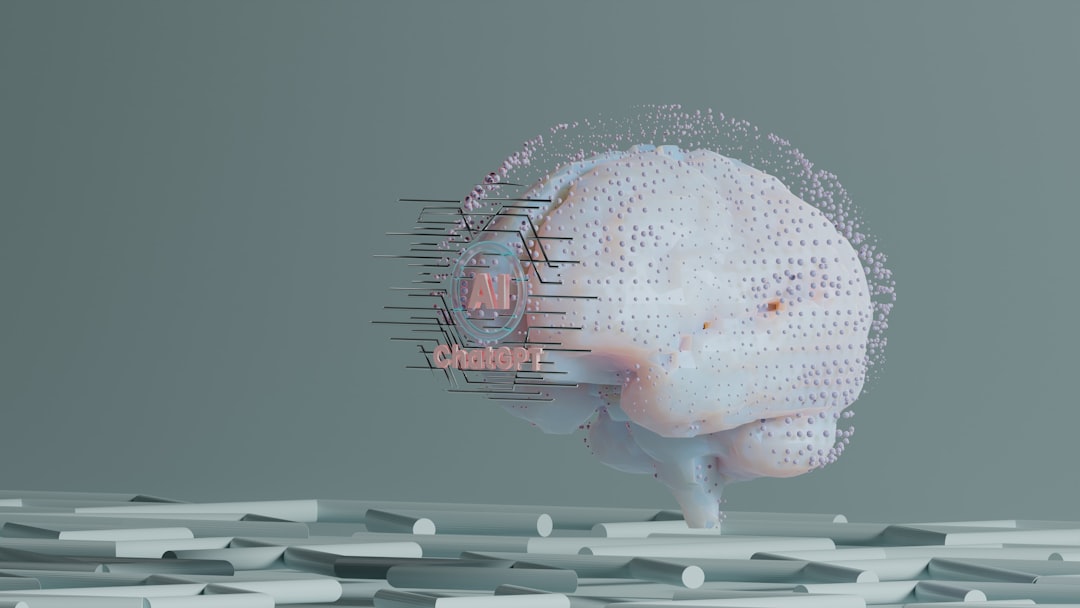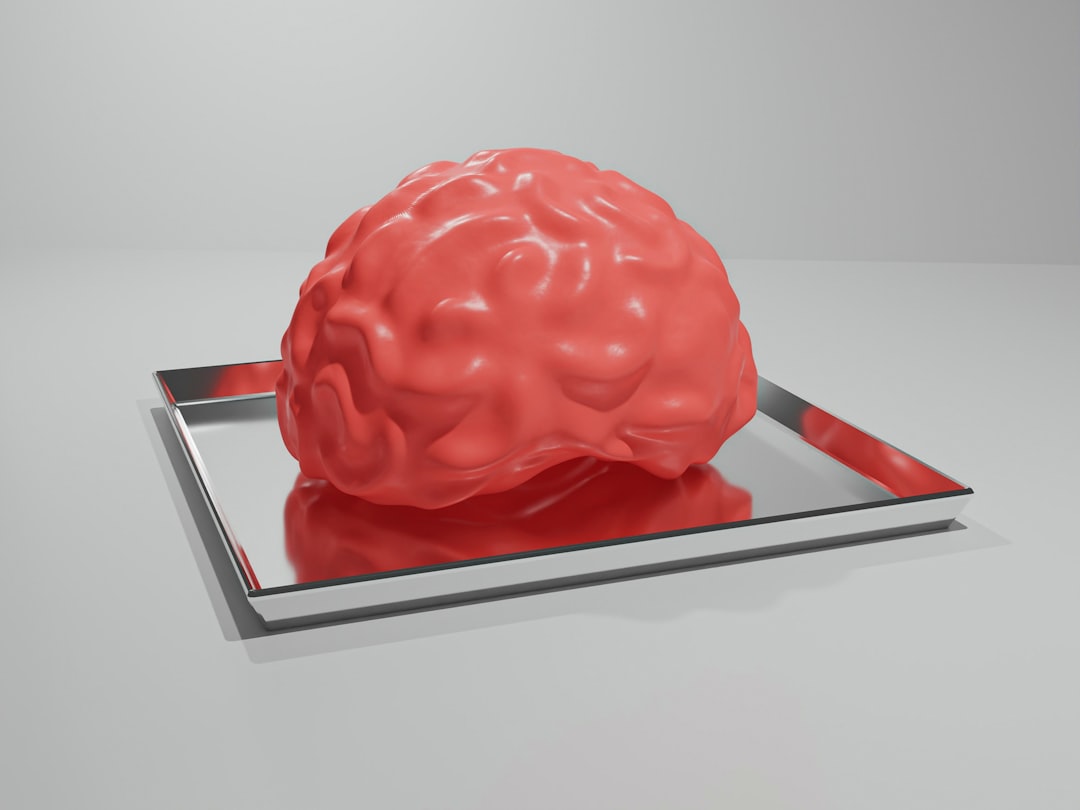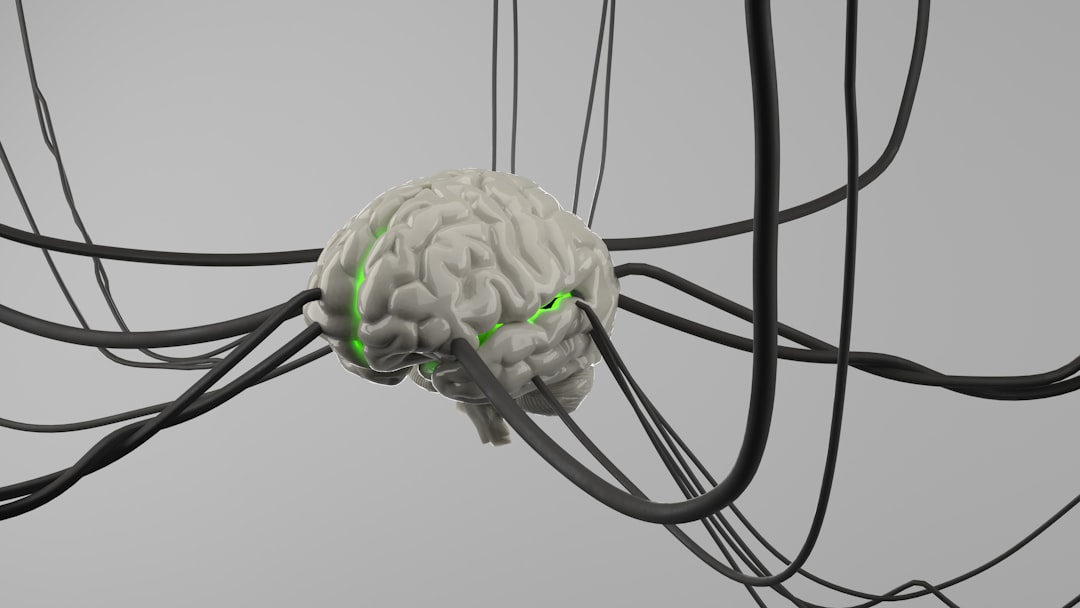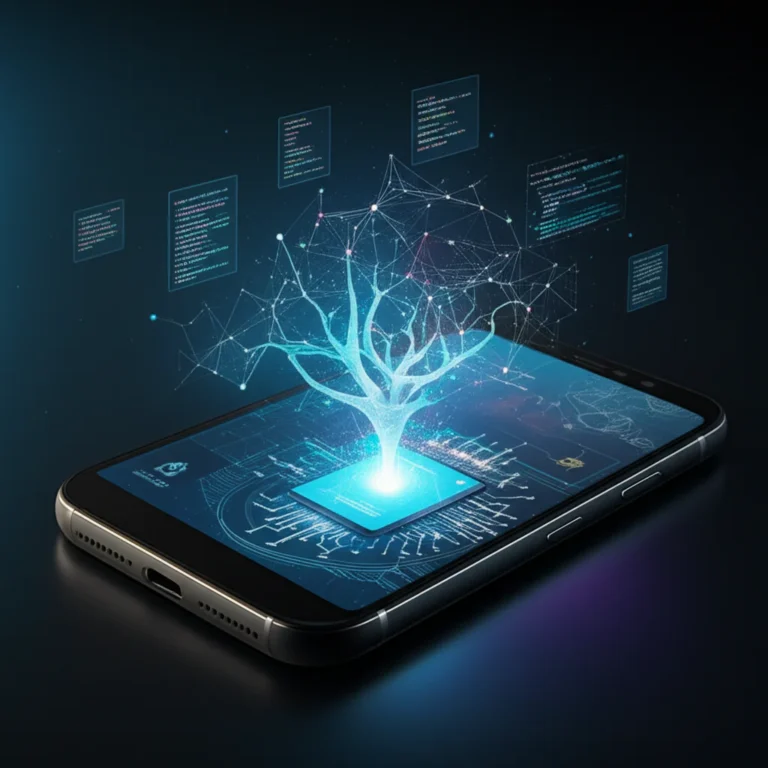Support our educational content for free when you purchase through links on our site. Learn more
9 Game-Changing Secrets of App Development with Cognitive Computing (2025) 🤖

Imagine building an app that doesn’t just follow commands but actually thinks, learns, and adapts like a human. Sounds like sci-fi? Well, cognitive computing is making this a reality—and fast becoming the secret sauce behind the smartest apps on the market. From virtual assistants that understand your tone to healthcare apps that analyze patient data in real-time, cognitive computing is reshaping how developers create intelligent, intuitive applications.
But how exactly does this brain-inspired technology work? What tools should you use? And what pitfalls should you avoid? In this comprehensive guide, we’ll unlock 9 game-changing secrets to mastering app development with cognitive computing. Whether you’re a seasoned developer or just curious about the future of AI-powered apps, you’ll find actionable insights, expert tips, and real-world examples to help you build smarter, more engaging apps in 2025 and beyond.
Ready to future-proof your development skills and create apps that truly think? Let’s dive in!
Key Takeaways
- Cognitive computing mimics human thought processes using AI techniques like machine learning, NLP, and neural networks to build smarter apps.
- Platforms like IBM Watson, Google Cloud AI, and Microsoft Azure Cognitive Services provide powerful tools to accelerate cognitive app development.
- Benefits include personalized user experiences, enhanced decision-making, and automated complex tasks, transforming industries from healthcare to gaming.
- Challenges such as data quality, security, and ethical concerns require careful planning and responsible AI practices.
- Step-by-step development involves defining goals, choosing platforms, designing architecture, and iterative testing.
- Future trends point to increased machine learning integration, cloud adoption, and a stronger focus on ethics and user experience.
👉 Shop Cognitive Computing Platforms:
- IBM Watson: Amazon | IBM Official
- Google Cloud AI: Amazon | Google Cloud
- Microsoft Azure Cognitive Services: Amazon | Microsoft Azure
- Amazon SageMaker: Amazon | AWS
Table of Contents
- ⚡️ Quick Tips and Facts
- 🕰️ The Dawn of Intelligent Apps: A Brief History of Cognitive Computing’s Evolution
- 🧠 Unpacking the Brain: How Cognitive Computing Powers Next-Gen Applications
- 🆚 Cognitive Computing vs. Traditional AI: Understanding the Nuance for App Developers
- 🚀 Why Go Cognitive? The Transformative Benefits for Your App Development Journey
- 🌐 Beyond the Hype: Real-World Cognitive Computing Applications Revolutionizing Industries
- 🛠️ The Developer’s Toolkit: Essential Platforms and Technologies for Building Cognitive Apps
- 🗺️ Crafting the Intelligent App: A Step-by-Step Guide to Cognitive Development
- 🚧 Navigating the Labyrinth: Common Challenges in Cognitive App Development and How to Overcome Them
- ⚖️ The Ethical Compass: Responsible AI and Data Privacy in Cognitive Applications
- 🔮 Future Forward: The Next Frontier of Cognitive App Development
- ✨ Conclusion: Your Journey into the Cognitive App Universe
- 🔗 Recommended Links
- ❓ FAQ: Your Burning Questions About Cognitive App Development Answered
- 📚 Reference Links
Quick Tips and Facts
As we delve into the world of cognitive computing, it’s essential to understand the basics. Cognitive computing is a type of artificial intelligence (AI) that simulates human thought processes, enabling machines to learn, reason, and understand language. According to Google Cloud, cognitive computing is based on artificial neural networks and uses techniques like natural language processing and machine learning. For more information on AI, visit our article at https://stackinterface.com/ai/.
Some key facts about cognitive computing include:
- It’s used in various industries, such as healthcare, finance, and customer service.
- It can analyze large amounts of data to identify patterns and make decisions.
- It’s used in applications like chatbots, virtual assistants, and self-driving cars.
- It’s a subset of AI that focuses on simulating human cognition and learning.
The Dawn of Intelligent Apps: A Brief History of Cognitive Computing’s Evolution

Cognitive computing has come a long way since its inception. The term “cognitive computing” was first coined in the 1990s, but it wasn’t until the 2010s that the technology started to gain traction. Today, cognitive computing is used in a wide range of applications, from healthcare to finance. According to Matellio, cognitive computing is a subset of AI that replicates human cognitive functions for decision-making.
Key Milestones
- 1990s: The term “cognitive computing” is coined.
- 2010s: Cognitive computing starts to gain traction.
- 2011: IBM Watson is launched, marking a significant milestone in the development of cognitive computing.
- 2014: Google acquires DeepMind, a leading AI research organization.
Unpacking the Brain: How Cognitive Computing Powers Next-Gen Applications
So, how does cognitive computing work? According to TechTarget, cognitive computing uses computerized models to simulate human thought processes in complex, uncertain situations. It combines data from various sources, considers context and conflicting evidence, and uses self-learning technologies like data mining, pattern recognition, and NLP to mimic human intelligence.
Key Technologies
- Artificial intelligence (AI): The umbrella term for technologies that rely on data to make decisions.
- Expert systems: Software systems that mimic the decision-making abilities of a human expert.
- Neural networks: Computer systems that mimic the human brain’s functionality.
- Machine learning: A type of AI that enables machines to learn from data.
- Deep learning: A type of machine learning that uses deep neural networks to process complex data.
Cognitive Computing vs. Traditional AI: Understanding the Nuance for App Developers
While cognitive computing is a subset of AI, there are key differences between the two. According to Google Cloud, cognitive computing simulates human thought processes, whereas traditional AI is designed for specific tasks. Cognitive computing aims to mimic the human brain’s functionality, while traditional AI solves problems or identifies patterns using algorithms.
Key Differences
- Cognitive computing: Simulates human thought processes.
- Traditional AI: Designed for specific tasks.
- Cognitive computing: Aims to mimic the human brain’s functionality.
- Traditional AI: Solves problems or identifies patterns using algorithms.
Why Go Cognitive? The Transformative Benefits for Your App Development Journey
So, why should you consider cognitive computing for your app development journey? According to Matellio, cognitive computing can solve complex problems by handling information like humans. It enables platforms to understand and improve responses to user queries. Some key benefits of cognitive computing include:
- Improved customer interactions: Cognitive computing can help you create more personalized and engaging interactions with your customers.
- Increased efficiency: Cognitive computing can automate tasks, freeing up human workers to focus on more complex tasks.
- Enhanced decision-making: Cognitive computing can analyze large amounts of data to identify patterns and make decisions.
Beyond the Hype: Real-World Cognitive Computing Applications Revolutionizing Industries
Cognitive computing is being used in a wide range of industries, from healthcare to finance. According to TechTarget, cognitive computing is used in applications like chatbots, virtual assistants, and self-driving cars. Some key examples of cognitive computing in action include:
- IBM Watson: A cognitive computer system that’s being used in healthcare to analyze patient data and assist doctors in treatment decisions.
- Amazon Alexa: A virtual assistant that uses cognitive computing to understand natural language and respond to user queries.
- Google Self-Driving Cars: A project that uses cognitive computing to enable self-driving cars to navigate complex roads and make decisions in real-time.
The Developer’s Toolkit: Essential Platforms and Technologies for Building Cognitive Apps
So, what tools and technologies do you need to build cognitive apps? According to Google Cloud, some key platforms and technologies include:
- Google Cloud: A cloud-based platform that offers a range of cognitive computing tools and technologies.
- IBM Watson: A cognitive computer system that can be used to build cognitive apps.
- Microsoft Azure: A cloud-based platform that offers a range of cognitive computing tools and technologies.
- Amazon SageMaker: A cloud-based platform that offers a range of machine learning and cognitive computing tools and technologies.
Crafting the Intelligent App: A Step-by-Step Guide to Cognitive Development
So, how do you build a cognitive app? According to Matellio, some key steps include:
- Define your goals: Determine what you want to achieve with your cognitive app.
- Choose your platform: Select a platform that offers the tools and technologies you need to build your cognitive app.
- Design your architecture: Design a architecture that can handle large amounts of data and complex decision-making.
- Develop your app: Use machine learning and cognitive computing tools and technologies to develop your app.
- Test and deploy: Test your app and deploy it to your chosen platform.
Navigating the Labyrinth: Common Challenges in Cognitive App Development and How to Overcome Them
So, what are some common challenges in cognitive app development? According to TechTarget, some key challenges include:
- Data quality: Ensuring that your data is accurate and relevant.
- Complexity: Handling complex decision-making and large amounts of data.
- Security: Ensuring that your app is secure and protected from cyber threats.
- Scalability: Ensuring that your app can handle large amounts of traffic and data.
The Ethical Compass: Responsible AI and Data Privacy in Cognitive Applications
As we develop more advanced cognitive applications, it’s essential to consider the ethical implications. According to Google Cloud, some key considerations include:
- Data privacy: Ensuring that user data is protected and secure.
- Bias and fairness: Ensuring that your app is fair and unbiased.
- Transparency: Ensuring that your app is transparent and explainable.
- Accountability: Ensuring that your app is accountable and responsible.
Future Forward: The Next Frontier of Cognitive App Development
So, what’s next for cognitive app development? According to Matellio, some key trends include:
- Increased use of machine learning: Machine learning will become even more essential for cognitive app development.
- More emphasis on ethics: There will be a greater emphasis on ethics and responsible AI.
- Greater use of cloud-based platforms: Cloud-based platforms will become even more popular for cognitive app development.
- More focus on user experience: There will be a greater focus on creating personalized and engaging user experiences.
For more information on game development, visit our category at https://stackinterface.com/category/game-development/. For more information on AI in software development, visit our category at https://stackinterface.com/category/ai-in-software-development/. For more information on coding best practices, visit our category at https://stackinterface.com/category/coding-best-practices/.
Conclusion: Your Journey into the Cognitive App Universe

Wow, what a ride! From the dawn of cognitive computing to the cutting-edge tools you can use today, we’ve unpacked the essential elements that make app development with cognitive computing a game-changer. At Stack Interface™, we’ve seen firsthand how integrating cognitive capabilities—like natural language processing, machine learning, and neural networks—can transform a standard app into an intelligent, adaptive powerhouse.
The positives? Cognitive computing enables apps to learn from data, reason through complex problems, and interact naturally with users. It supercharges customer engagement, automates tedious tasks, and helps developers build smarter, more personalized experiences. Platforms like IBM Watson, Google Cloud AI, and Microsoft Azure Cognitive Services provide robust toolkits that make development smoother and scalable.
The challenges? It’s no walk in the park. Data quality, security concerns, and ethical considerations require careful navigation. Plus, building cognitive apps demands a skilled team and patience for iterative learning and testing.
Our confident recommendation? If you’re serious about future-proofing your apps and delivering next-level user experiences, embracing cognitive computing is a must. Start small, leverage cloud platforms, and keep ethics front and center. The future is intelligent—and it’s yours to build.
Ready to dive deeper? Check out our recommended resources below and explore the tools that can bring your cognitive app vision to life!
Recommended Links
👉 Shop Cognitive Computing Platforms and Tools:
- IBM Watson: Amazon Search | IBM Official Website
- Google Cloud AI & Vertex AI: Amazon Search | Google Cloud Official
- Microsoft Azure Cognitive Services: Amazon Search | Microsoft Azure Official
- Amazon SageMaker: Amazon Search | AWS Official
Recommended Books on Cognitive Computing & AI:
- “Cognitive Computing and Big Data Analytics” by Judith Hurwitz et al. — Amazon Link
- “Artificial Intelligence: A Guide for Thinking Humans” by Melanie Mitchell — Amazon Link
- “Deep Learning” by Ian Goodfellow, Yoshua Bengio, and Aaron Courville — Amazon Link
FAQ: Your Burning Questions About Cognitive App Development Answered

What are the key features of cognitive computing in app development?
Cognitive computing apps mimic human thought processes by integrating machine learning, natural language processing (NLP), pattern recognition, and contextual understanding. These features enable apps to learn from interactions, understand unstructured data like speech or text, and make decisions based on evolving information. This leads to apps that are adaptive, interactive, and capable of handling complex tasks beyond traditional programming.
Read more about “7 Game-Changing Deep Learning Techniques for App Optimization (2025) 🚀”
How does cognitive computing enhance user experience in mobile apps?
By enabling apps to understand natural language, recognize speech, and personalize responses, cognitive computing creates more intuitive and engaging user experiences. For example, virtual assistants like Amazon Alexa or Google Assistant use cognitive computing to interpret user intent and provide relevant, context-aware answers. This reduces friction, anticipates user needs, and fosters a conversational interface that feels human.
Read more about “10 Game-Changing Intelligent Systems in Mobile Apps (2025) 🤖📱”
What role does machine learning play in cognitive computing for app development?
Machine learning is the engine that powers cognitive computing’s ability to learn from data without explicit programming. It allows apps to improve over time by recognizing patterns, predicting outcomes, and adapting to new inputs. In app development, machine learning models can analyze user behavior, optimize workflows, and automate decision-making, making apps smarter and more efficient.
Read more about “10 Smart Ways Developers Can Add AI to Apps & Games (2025) 🤖”
Can cognitive computing be used to create more intelligent game characters?
Absolutely! Cognitive computing can breathe life into game characters by enabling them to learn from player behavior, adapt strategies, and interact naturally. Using techniques like reinforcement learning and natural language processing, developers can create NPCs (non-player characters) that respond dynamically, making gameplay more immersive and unpredictable.
How does cognitive computing improve app security and data protection?
Cognitive computing enhances security by detecting anomalies, predicting threats, and automating responses. Machine learning models trained on vast datasets can identify unusual patterns indicative of fraud or cyberattacks. Additionally, cognitive systems can enforce data privacy by ensuring compliance with regulations and managing sensitive information responsibly.
What are the benefits of using cognitive computing in enterprise app development?
Enterprises benefit from cognitive computing through improved operational efficiency, better decision-making, and enhanced customer engagement. Cognitive apps can automate complex workflows, analyze massive datasets for insights, and personalize customer interactions at scale. This leads to cost savings, competitive advantages, and more agile business processes.
Read more about “Top 10 Best Video Game Frameworks for Android (2025) 🎮”
What tools and platforms are available for building cognitive computing-powered apps?
Developers have a rich ecosystem of platforms to choose from, including:
- IBM Watson: Known for healthcare and enterprise AI solutions.
- Google Cloud AI and Vertex AI: Offers scalable machine learning and NLP tools.
- Microsoft Azure Cognitive Services: Provides APIs for vision, speech, language, and decision-making.
- Amazon SageMaker: Focused on building, training, and deploying ML models with ease.
These platforms offer SDKs, APIs, and pre-built models to accelerate development and integration.
Reference Links
- What is Cognitive Computing? | TechTarget
- Google Cloud – What is Cognitive Computing?
- Matellio – Cognitive Computing Use Cases
- IBM Watson Official Website
- Google Cloud AI Platform
- Microsoft Azure Cognitive Services
- Amazon SageMaker
Ready to build the future? Cognitive computing is your secret weapon to creating apps that think, learn, and grow with your users. Dive in and let your code get a little smarter every day! 🚀





